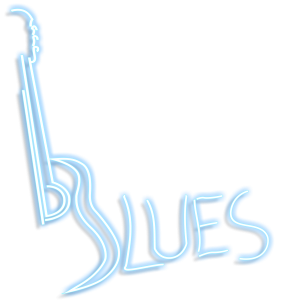Among the bustle of students during the University of Idaho Lionel Hampton Jazz Festival Friday, classrooms in the Teaching and Learning Center were home to a variety of important workshops, including one on the connection between the blues and the rule of law.
UI Associate Professor of Law David Pimentel shared a connection between his field of study and music with a few adults and about 30 high school students Friday.
Pimentel explored the relationship between blues music and U.S. legal institutions. He said the blues developed because of the oppression of black Americans in the late 19th century, with blues tunes reflecting the despair of people who were denied justice.
“The blues was a product, at least in part, of the failure of the rule of law in that community at that time,” Pimentel said.
Throughout Pimentel’s presentation, he played songs such as “Black and Blue,” “Strange Fruit,” “Midnight Special” and many more. The lyrics reflected the oppression and hardships that black Americans faced throughout history, and also a pushback against legal institutions and the police. Through songs, the oppressed were fighting for justice, Pimentel said.
“Somehow these messages got out, and they got out because they were music,” he said.
James Mitsuyasu, band director at Cascade High School in Leavenworth, Washington, said he had heard the song “Strange Fruit” before, but had never looked at it from a social justice standpoint.
“Coming back to (the song) was interesting, almost uncomfortable, but it made an important statement,” Mitsuyasu said.
The experiences of black Americans can be contrasted with expression elsewhere, Pimentel said, but it is interesting to note that music traditions haven’t emerged from other areas like Germany or North Korea.
He said this is primarily because the right of free speech is hard to deny in the U.S., which allowed for the creation of a “musical vehicle.”
The blues were able to carry messages of justice because music is a transformative thing that can change public opinion, and in the U.S., the government doesn’t decide what messages can reach the people, Pimentel said.
Pimentel, who has experience with jazz music and played the blues in college, said blues music is very powerful because it reaches a wide audience.
“Blues has this enormous appeal that seems to transcend cultural barriers,” he said. “It seems to transcend generational barriers.”
Ultimately, the failure of the rule of law for black Americans inspired the development of the sorrowful music, but the vitality of the First Amendment speech rights emboldened the blues and protected that music, Pimentel said.
“The message of the blues affected one of the most critical reversals in American legal history,” Pimentel said. “In the end, the blues ultimately played a role in remedying the very rule of law failures that inspired it.”
Pimentel said there is still musical protest in the U.S. today, but in the form of rap and hip-hop. He said it hasn’t made the leap to appeal to mainstream white audiences, but the “language of protest” is there.
“We’re not out of the woods yet, but we have seen change,” Pimentel said. “We’ve come so far.”
Jordan Willson can be reached at [email protected]
